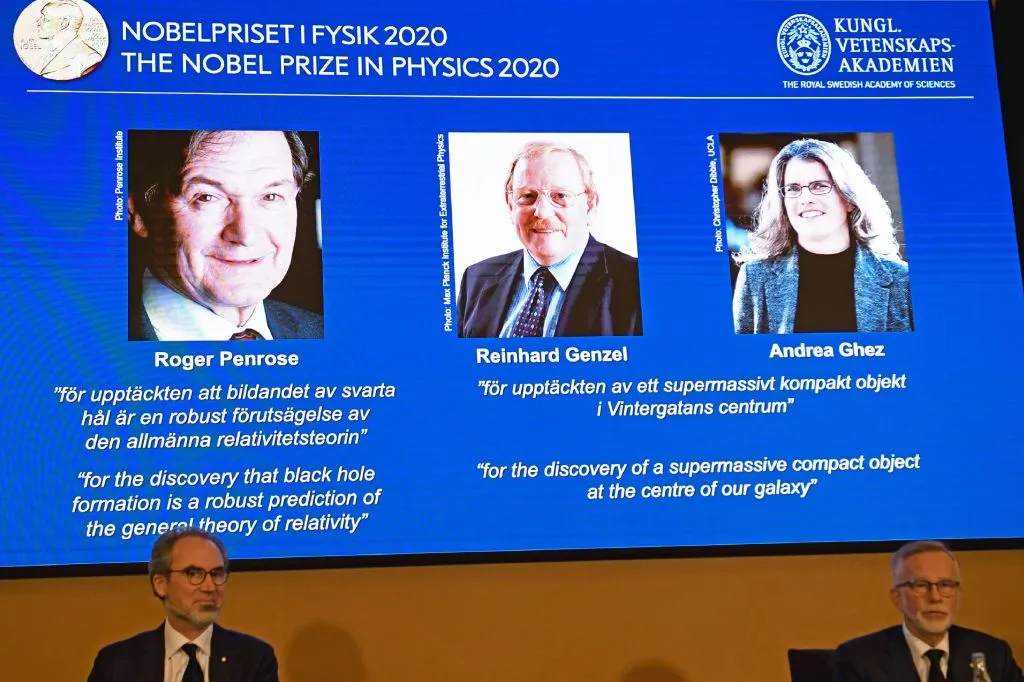Three scientists have been awarded the 2020 Nobel Prize in Physics for their work on the study of black holes and the discovery of a supermassive black hole at the centre of our galaxy.
Roger Penrose from the UK, Reinhard Genzel from Germany and Andrea Ghez from the US will share the 10m Swedish kronor prize money, with half going to Penrose and the other half split between Genzel and Ghez.
Roger Penrose is a British physicist based at the University of Oxford who in 1965 developed proof that black holes are a consequence of Einstein's general theory of relativity.
His work proved that black holes are possible and he was able to describe them in detail; how at they hide a singularity in which the known laws of nature cease.
Penrose's work is still considered by many to be the most important contribution to the general theory of relativity since Einstein.

Reinhard Genzel and Andrea Ghez are German and American scientists, respectively, who lead groups that have been studying a region called Sagittarius A* at the centre of the Milky Way, our home galaxy.
Since the 1990s these groups have been studying this central region and have found that there is a massive, heavy, invisible object that's pulling on groups of stars and causing them to fly around at enormous velocity.
In this region, the equivalent mass of about 4 million times that of the Sun is jammed together in a space the size of our Solar System.
Genzel, who is Director at the Max Planck Institute for Extraterrestrial Physics, and Ghez, who is a professor at the University of California, Los Angeles, have conducted research that has enabled them to peer through Earth's distorting atmosphere and beyond dense cosmic dust.
Their studies have provided the best evidence yet that there is indeed a supermassive black hole at the centre of the Galaxy.
However, astronomers don't yet know where the nearest black hole to Earth is.
Find out more about this year's award by visiting The Nobel Prize website.
